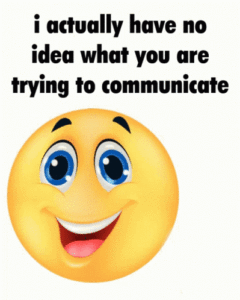Way back when I was actually a Communications/Media major in college. That was before I went on to obtain my teaching degree. People considered a degree in Communications about as useful as a degree in History. Now we are living in an age where almost everything is about a new way of communicating. Times change. If you are a teacher, you know firsthand how important it is to collaborate with your colleagues and other teachers. Whether you’re working on a lesson plan, brainstorming new ideas, or seeking support, collaborating with others can help you become a better educator and provide your students with a more well-rounded and engaging learning experience. But if you’re new to teaching or simply looking to improve your collaboration skills, you might be wondering where to start. Here are a few tips for effectively collaborating with your colleagues and other teachers:
- Identify your goals and needs. Before you start collaborating with others, it’s important to have a clear understanding of what you hope to achieve. Are you looking for new lesson plan ideas? Do you need support with a particular subject matter? By identifying your goals and needs, you can better focus your efforts and make the most of your collaborations.
- Build relationships with your colleagues. Collaborating with others is much easier if you have strong relationships with your colleagues. Take the time to get to know your colleagues and build a sense of trust and mutual respect. This can be as simple as chatting with them during lunch or sharing resources and ideas.

- Use technology to your advantage. There are many tools and technologies available that can help you collaborate with others, even if you’re not in the same location. For example, you can use video conferencing platforms like Zoom or Google Meet to hold meetings or workshops, or use online tools like Google Docs or Trello to work on projects together in real time.
- Seek out opportunities for professional development. Many schools and educational organizations offer professional development opportunities for teachers, including workshops, conferences, and online courses. These can be great opportunities to learn new strategies and techniques, as well as connect with other teachers and educators.
- Share your knowledge and expertise. Collaborating with others doesn’t always mean asking for help or seeking new ideas. You also have valuable knowledge and expertise to share with your colleagues. Consider presenting at a conference or workshop, or sharing your lesson plans and materials with others. This not only helps your colleagues, but it also helps you to reflect on your own teaching practices and find new ways to improve.
- Be open to new ideas and approaches. Collaborating with others means being open to new ideas and approaches. While you may have your own tried-and-true methods, it’s important to be open to hearing different perspectives and trying new things. This can help you become a more flexible and adaptable teacher, which can be especially valuable in today’s rapidly changing educational landscape.
- Practice good communication skills. Effective collaboration depends on good communication. Make sure to listen actively to your colleagues and communicate your thoughts and ideas clearly. Be respectful of others’ opinions, even if you disagree with them, and try to find common ground.
Collaborating with your colleagues and other teachers can be a rewarding and enriching experience. By building relationships, using technology, seeking out professional development opportunities, sharing your expertise, being open to new ideas, and practicing good communication skills, you can effectively collaborate with others and become a better educator.
 Please share and comment if this was helpful.
Please share and comment if this was helpful.
Thank you!
Read more Instructional Strategies!










